The below is a tandem-written piece between Steven Manuel and his old good buddy Kevin Still. It’s not a conversation between them; it’s a tag-team effort written at YOU. Here they go:
SM: Your life, my good man, has been custom built to protect, empower, and support your vices. I’m not here to crush you for that; it’s this way with all of us. Those vices might include video games. Statistically, yours probably include pornography and uncontrollable phone use. You might even have some chemicals thrown in there too (coffee, anyone?). It’s a fact: we make dark corners into which we stuff our pet sins, then we stage our schedules or our friends or our clothes around those corners so it looks like a sunny breakfast nook.
But if sin = death (Biblically, death means “separation”), and if we want to become more united (or, ONE, or integrated) as men and household leaders under Christ… we need to be real about sin, and come out of the death-holes we’ve dug ourselves. I know that feels heavy. I know it’s an intimidating way to start a short read. And I know you might not be ready to start doing home demolition work to your breakfast nook.
So let’s start with my friend Kevin.
KS: I felt ready to use the word “addiction” when I was ready to admit my own powerlessness. The advice I’d gained from well-meaning friends to “just moderate”, to “just have two beers”, to “just take a dry day / week / month to cool off” proved pointless. You might as well tell a shivering bullfrog to fly south for the winter. Even though I “quit drinking” for a few extensive seasons, abstaining completely for up to several months, I did not know the first thing about drinking responsibly. So I played the charade of moderation — drink less, impose restrictions, try a little harder! — on an exhausting loop for nearly a decade.
What is it they say about insanity? It’s “doing the same thing over and over and expecting different results”, right? Yeah, and I’d say a decade was long enough. There was no more “trying harder” for me. I was ready to admit defeat, to say, even as a son of God, I was utterly powerless against alcohol. When I finally admitted as much and stopped trying to control alcohol, everything changed. And I’ve now been sober for 16 months.
A buddy of mine is fighting a different type of addiction. He calls me each morning to report that he remained clean another 24 hours. Let me say that again: he calls every day. Do I pray for him? Sure. Do I bless him with strength in his inner man? You bet. But I still expect him to call each morning and say, “Hey, I made it another day.” And I say, “Great. Call again tomorrow.” And we do this because I know, from personal experience, that certain allegiances are made in dark places of the heart that have evolved — and actively hide — apart from the light. And those allegiances are less to a substance, to the addictive agent, and more to protecting some old hurt, some broken emotional bone or spiritual vertebrae. Starving that sucker out one day at a time, while also admitting verbally to self and to another that it has accumulated one less victory, is a fine way of exposing hidden allegiances. Such exposure is a solid start towards sobriety.
SM: I want you, o reader friend, to be sober. Not for me. Not even for you (though you’ll benefit in innumerable ways)… but for the Master. He deserves men who come to him free of any extraneous attachments. Indeed, He demands it.
“Whoever does not give up everything he has [formed attachments to] cannot be my disciple.” That’s the Master, in Luke 14:33. (Now, we’re not talking about being born again, here; we’re not talking about conditions for His having mercy on you–the only condition there is that you are bound up in sin and call to Him. We’re talking about free-and-clean discipleship. We’re talking about army enlistment. We’re talking about being candidates for a deeper relationship with Jesus. And increased authority. And responsibility. MORE LIFE.)
KS: I asked my friend why he used the word “addiction” to describe his issue. He said something significant that felt wildly familiar to me. He said, “Because even as badly as I want to quit, for some reason I can’t. It’s like a compulsion.” Congratulations, my friend! You’re on the precipice of powerlessness! And, in being willing to go there, you’ll finally relinquish the abandon you’ve submitted to one substance, and you’ll turn that abandon over to God. In doing so, that old wound that’s been falsely medicated will begin to heal. But you can’t get there until you embrace powerlessness — to willingly say, “I both really love and really hate my enslavement”–which is exactly what Paul did in Romans 7, if we’ll recall. At that level of rare honesty, the heavens bid welcome and the searing heat of raw Light begins burning away allegiances you never knew you made. As David Foster Wallace said, “The truth will set you free. But not until it is finished with you.”
SM: Yikes.
KS: The difference between a temptation (an ill-advised desire) and a compulsion (a fixation that gnaws even beyond the attainment of desire) is a distinction we’re not ready to tackle in our churches. We’re too keen on verses like “God will not give us more than we can bear” and “For I am now dead to the law of sin and death.” Both great verses! Sadly, however, we have shadowed good scripture with bad advice and, in doing so, remained unnecessarily shackled to oppressive compulsions confused as trifling temptations.
SM: Churches seem way more interested in giving Helpful Tools to Optimistic People than reminding us that without Jesus’ blood applied to all areas of life every day, we’re not fit for the dung heap. If you’re a bootstrapper, modern Christianity is for you; if you’re broken beyond hope of repair, it can be a completely isolating arena.
KS: This is why Alcoholics Anonymous may afford the most vivacious church experience many people encounter. This is also why many people in AA say, “Well, I went to my church, and they told me to try harder, teach more Sunday school, trust God more. But when I came to AA, they helped me admit that none of that stuff could keep me clean. So I ditched my church and now I’m here.”
The church has a lot to learn about relinquishing self-imposed Christian power.
By the time I said the words, “My name is Kevin, and I’m an alcoholic” in my first AA meeting, I meant them. Throughout my wet decade,
- I missed work due to hangovers.
- I blew our family budget and emptied our accounts several times.
- I broke promises to my wife and others.
- I bullied and guilted my wife into drinking with me.
- I passed out at parties.
- I landed in the emergency room with booze induced panic attacks and dehydration.
- I bathed myself in suicidal fantasies and internet porn and fear-soaked solitude.
- I avoided every conceivable form of responsibility by crying out, as the slothful sluggard in Proverbs, “Ayee! There’s a lion in the street!”
- Still, I entertained notions of becoming one of the great drunken writers — like Raymond Carver or Denis Johnson — never realizing those guys sobered up and then wrote their best material.
I hid my empties and regurgitated enough spiritual chatter to project a copacetic appearance. But, obviously, things were not copacetic. After I sobered up, my wife admitted that I had been emotionally distant, verbally cruel, financially irresponsible, emotionally needy, relationally exhausting, and all around undependable. Friends told me I had seemed weighed down, guilt and shame stricken, blanketed by a need to hide myself from the world. Please note: these are not the actions of a man who simply fails to temper his temptations. This is the life of a man devoured by an addictive compulsion, driven by a mental obsession for more, and broken by a false religious doctrine attesting that trying harder — via furrow-browed prayer and fresh commitments — would save him from himself.
The AA definition of addiction focuses on the “mental obsession” of compulsion more than anything chemical or generational. Sure, there’s room to address those things — to extract those dark allegiances of the heart — in recovery, but the definition of addictive behavior, according to AA, is a “mental obsession” for alcohol that overshadows rationality. This definition is attached directly to the 12 Steps of the program, which are designed to dismantle that “mental obsession”. And it’s this movement into the Steps, into an active dismantling of compulsive behavior, that AA refers to as sobriety. Abstinence, in itself, is not sobriety. However, abstinence is a significant tool for working towards sobriety, which is why I ask my friend to call me every morning, and which is why I called my sponsor every morning. One can’t move away from compulsion while still trapped in its grip.
SM: Does that make sense to everybody? Did you see what Kevin said above about swearing off booze for months at a time? Wouldn’t you applaud your beer-drinking Christian buddy who pulled that off? (I applauded Kevin…) Wouldn’t you assume alcohol wasn’t his master? (I did.) But… haven’t you done the same with your dark habits? I have: “If I can get through one month porn-free… If I don’t take my phone to bed for just one night… If I can swear off sugar for a whole week… then I’ve shown I don’t have to have it. I’ve proven to myself I don’t have an ADDICTION.” Nay nay, my friend. The Master sees through that self-talk. Abstinence isn’t sobriety.
KS: This “mental obsession” definition of addiction is important because it is so far reaching. Suddenly, we understand how addictions can creep up anywhere in life — even in the life of the believer. I have seen men whose families suffer because they just. Cannot. Stop. Working. . . .
I teach college, and, recently, students told me and my wife their parents are more attentive to their phones than the family. Ironically, these same students cannot abide apart from social media for a 50 minute class.
We see young professionals ripped to the core by porn and the constancy of media absolutely insist they “cannot be successful” without smart-phone technology.
We’ve heard (and helped) our people joke openly about their inability to moderate sugar and shopping and Netflix bingeing. Even exercise and dieting and podcasting, those positive self-help accessories, can overshadow the essentials of true relational and spiritual nourishing. Compulsions are different from temptations. Temptations, we say, pull us towards something unwanted; whereas, we can easily become compulsively overextended towards things that are not only permissible but are also beneficial — especially when they soothe us in the deepest places of our hurt and identity.
The question concerning potential addiction should not only regard unwanted negatives. It should examine also any compulsion or mental obsession that keeps us — and those we love — in defeated loops. We possess no try, no effort, no power great enough to break this cycle. This is, unfortunately, the greatest truth about ourselves we’re most theologically trained to deny.
SM: What do we want for you? My prayer is that, for the Master, and for your family, and for yourself, God would give you the grace to see your heart how He sees it. That you wouldn’t hide behind any sophisticated reasoning or media affirmation or self-protecting demonic scheme. That you would come out into the open (Psalm 18:19), see your Savior waiting, and embrace your powerlessness.






